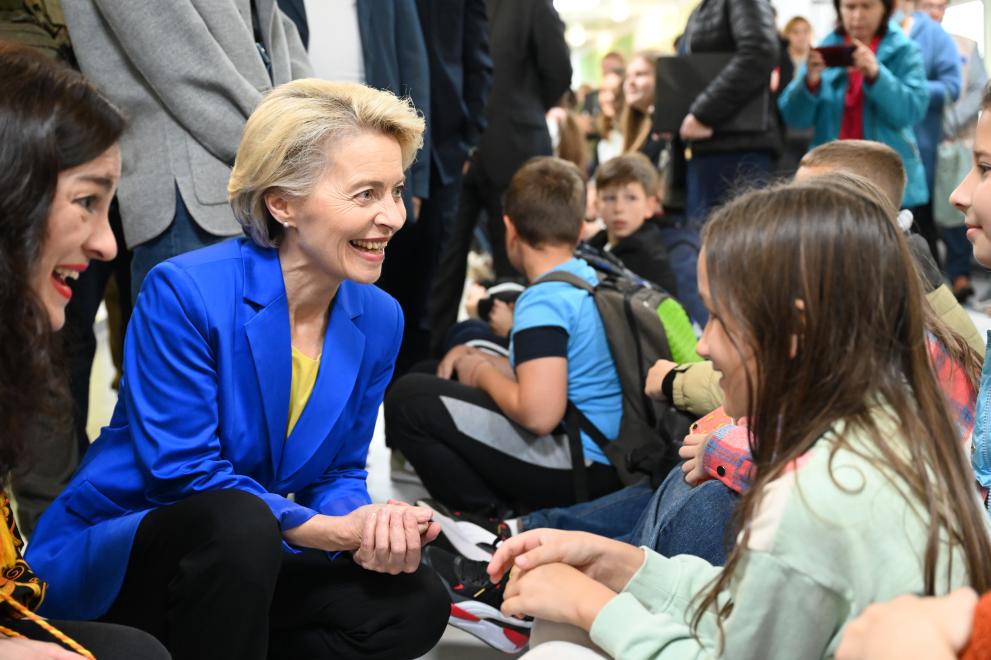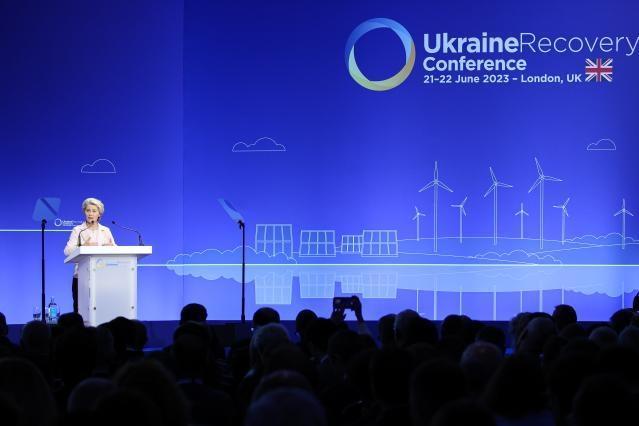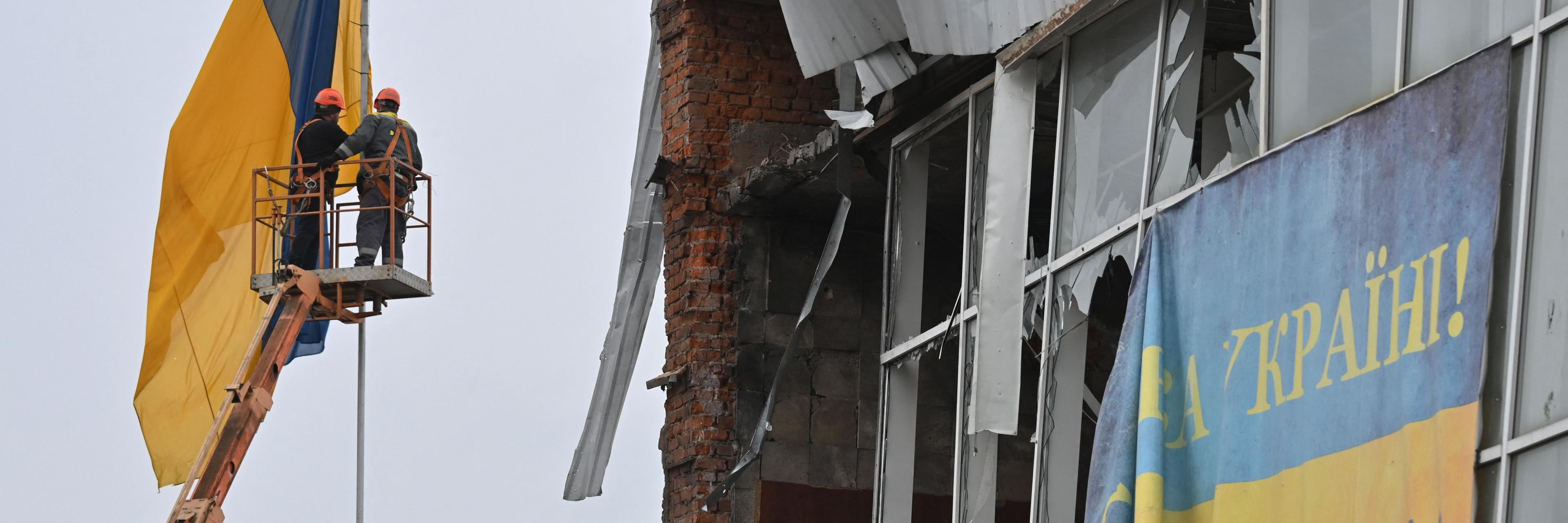Ongoing EU support
A major global financial effort will be required to rebuild Ukraine once the war is over. The EU is already contributing substantially to boost the country’s ongoing resilience, but more support will be needed in the medium to long-term: to re-establish the foundations of a free and prosperous country, anchored in European values and well integrated into the European and global economy and to support it on its European path.
Since the start of Russia's war of aggression, the EU and its Member States and the European financial institutions, in a Team Europe approach, are making available almost €98 billion in financial, humanitarian, emergency, budget and military support
- €47.9 billion to support its overall economic, social and financial resilience. This includes an unprecedented financial support package of €18 billion in 2023
- €33.1 billion in military assistance has also been made available under the European Peace Facility and by Member States directly
- up to €17 billion made available to Member States to cater for the needs of people fleeing the war
The EU is also promoting green reforms, as well as green reconstruction and modernisation of Ukraine bilaterally, within the Eastern Partnership and the Energy Community.
While Russia's war of aggression continues, the overall needs for the reconstruction of Ukraine are not yet known. Nevertheless, it is important to design the main building blocks of this international effort already now.

“Ukraine can count on the EU's full support. We stand ready to take a leading role in the international reconstruction efforts to help rebuild a democratic and prosperous Ukraine. This means investments will go hand in hand with reforms that will support Ukraine in pursuing its European path.”
Ursula von der Leyen, President of the European Commission
The Ukraine Facility
To help Ukraine in its recovery, reconstruction and modernisation efforts, the EU will launch a new support mechanism for the years 2024 to 2027. The Ukraine Facility is a dedicated instrument which will allow the EU to provide Ukraine with up to €50 billion in stable and predictable financial support during this period.
The Facility underlines the EU’s commitment to supporting Ukraine in the face of Russia’s ongoing war of aggression and on its path towards EU membership.
Multi-agency Donor Coordination Platform
The Multi-agency Donor Coordination Platform to support Ukraine's repair, recovery and reconstruction process was launched on 26 January 2023. The Platform allows for close coordination among international donors and financial organisations and ensures coherent, transparent, and accountable support.
Its aim is to ensure enhanced coordination amongst all key players providing short-term financial support but also longer-term assistance for the reconstruction phase. In this way, it builds on the results of the Conferences in Lugano, Berlin and Paris, to help bridge the gap between needs and resources.
Mobilising international support
It is now that Ukraine needs help the most. The European Commission and its partners are mobilising international support for Ukraine's economic and social stabilisation, reconstruction and recovery from the effects of war.

At the Ukraine Recovery Conference 2023 in London, the European Commission, the European Investment Bank (EIB), the European Bank for Reconstruction and Development (EBRD), and the International Finance Corporation (IFC) signed agreements worth over €800 million to mobilise private investment for the recovery and reconstruction of Ukraine's economy. The agreements, which are supported by the European Fund for Sustainable Development Plus, the financing arm of NDICI-Global Europe, underscore the joint international commitment to mobilise the private sector for Ukraine's recovery and reconstruction.
International Expert Conference on the Recovery, Reconstruction and Modernisation of Ukraine
In October 2022, the European Commission and Germany, as the then chair of the G7, co-hosted the International Expert Conference on the Recovery, Reconstruction and Modernisation of Ukraine in Berlin. The conference was another important step that demonstrated unwavering support from the EU and the international community to Ukraine. It also highlighted that the Commission and the international community will continue to support Ukraine beyond its immediate needs, and on its path to EU accession.
President of the Commission Ursula von der Leyen stressed three elements that were key for a successful reconstruction of Ukraine:
- making sure that Ukraine at all times gets the support it needs – from relief, to rehabilitation, to long-term reconstruction
- the right mechanism in place to make support as broad and as inclusive as possible
- firmly embedding Ukraine's reconstruction efforts as part of its path towards the European Union
Given the scale of the challenge at stake, the recovery efforts need to be an inclusive multi-stakeholder process, involving both public and private sectors, as well as international organisations. That is why the conference brought together world-renowned experts across various disciplines and backgrounds, as well as representatives from civil society and the private sector, together with the Ukrainian government.
Support for Ukrainian schools
Because the future of Ukraine begins in its schools, the EU is supporting the rehabilitation of damaged schools with €100 million, announced by the President in her 2022 State of the Union address.
The European Commission has allocated around €14 million to purchase school buses and bring Ukrainian children safely to school. The Commission has also launched an EU-wide campaign to donate school buses for Ukraine, channelled through the EU Civil Protection Mechanism.
In parallel, the Commission will work with Ukraine to ensure the country’s seamless access to the single market, empowering Ukraine to make the most of its potential, help accelerate growth and create opportunities.

